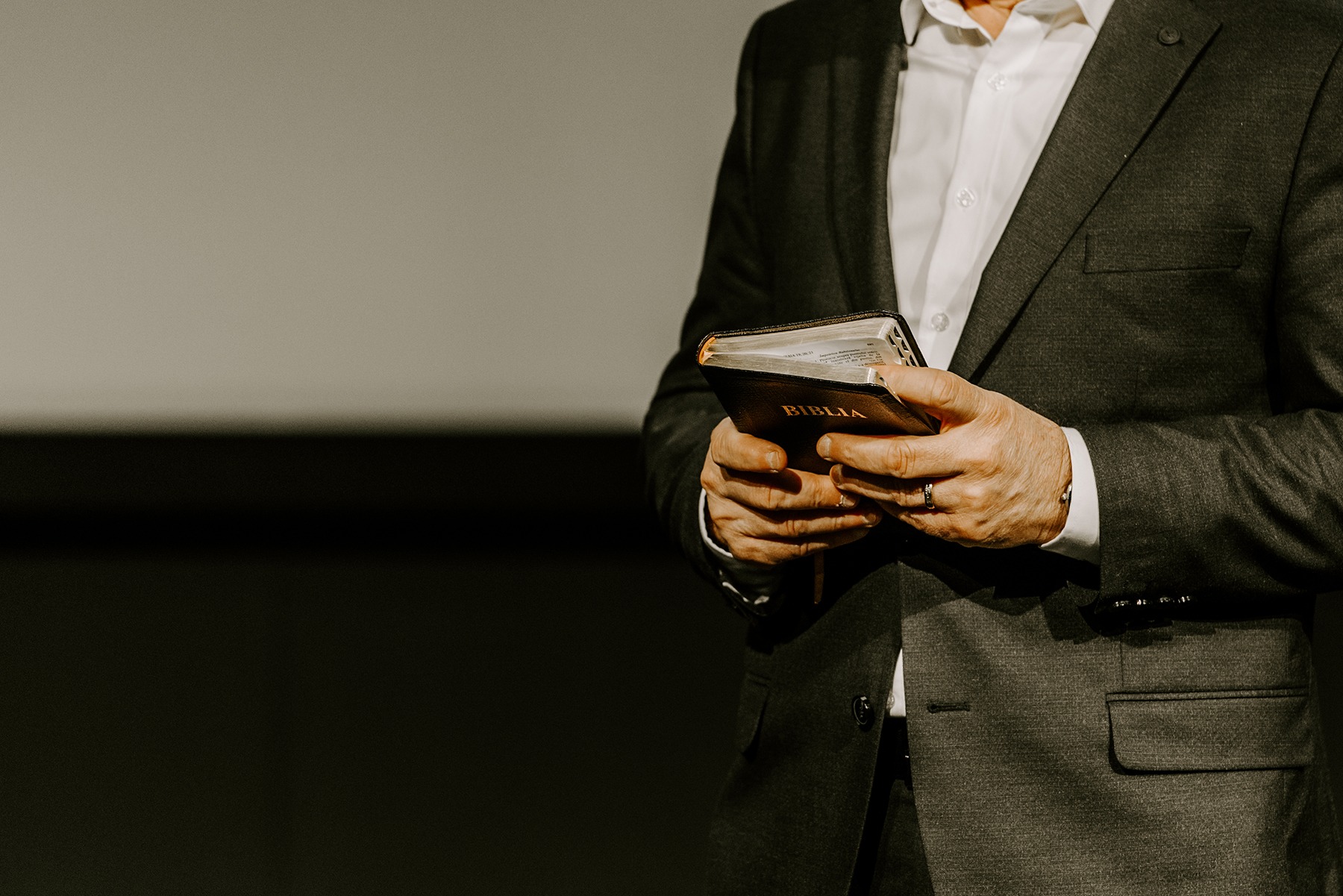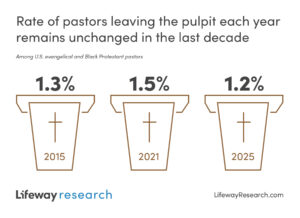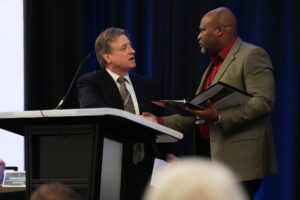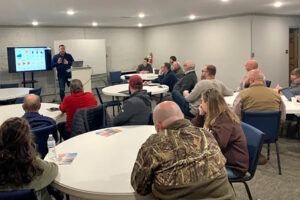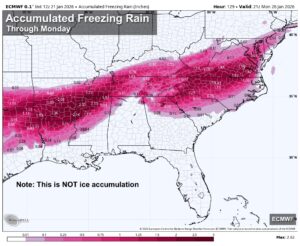By Grace Thornton
The Baptist Paper
Ryan Dupree said where he stands, there are people all around him with questions and fears — and not a lot of answers.
Dupree, who serves as the multiethnic ministry specialist for South Carolina Baptist Convention, said he’s heard from Hispanic pastors whose church attendance has gone down as a result of the recent immigration crackdown.
“A lot have stopped going to church,” he said. “We’ve even had a few pastors who have stopped pastoring right now because they’re scared.”
Dupree said the same concerns plague the Haitian churches in the area, and some Chinese pastors are also at risk of losing their visas in the future because of policy changes.
“We’re looking at all the different ripples in the different areas of the diaspora community, and the swift actions that have been taken have really made an impact,” he said.
Full of people and fears
In one Hispanic church in Alabama, the seats are still full of people — but also full of fears, according to the pastor.
“There’s a man in my church who has been here since the 1980s, and he says, ‘All I’ve known is here, and my kids are from here, but my wife and I don’t have the documents,’” the pastor said. “This couple, they didn’t qualify for any of the immigration reforms to legalize their status, so they’re wondering, ‘What’s going to happen if they catch us? If they catch me while I’m working, what’s going to happen with my family?’ He’s been here all his life.”
He says about half his congregation is in the same situation.
“That’s where the unknown is — there are a lot of questions of ‘what am I going to do if,’” he said.
He said he doesn’t have answers; he just tells his congregation that all they can do is trust the Lord.
“I tell them, ‘You’re working, you’re contributing to the country. Pray to God that He will protect you and that your family won’t get separated,’” the pastor said.
He said he prays that “this situation might bring people to church more.”
In Georgia, one Hispanic pastor said he has seen that happen.
“I don’t want to think incorrectly, but it may be out of fear that they are attending and seeking protection from God,” he said.
But outside Sunday services, attendance has dropped, he said.
“People don’t want to drive any more than needed. Out of necessity they go out to work,” the pastor said. “As pastors we are adjusting and meeting by Zoom.”
He said the “undocumented brothers are very afraid.”
“Families are preparing for how to confront different scenarios in the case of deportation of a spouse or parent,” he said. “Many of the brothers who have legal status feel for those who have worked with them side by side for years, some up to 28 years here without a legal status.”
He said he and other pastors are called to minister to those whom God has put in their paths.
Trusting God
“We are not able to resolve their immigration status, but we are praying for the situation and especially for our church families, encouraging them to trust in God and rest in His will,” he said.
Brian Harper, church planting strategist for the Alabama Baptist State Board of Missions, urged followers of Christ to pray for these churches and the challenges they face.
“We can partner deeply with them by praying for them and helping them financially,” he said, noting that giving is down because of the decrease in attendance or the tighter finances of those who are attending.
Step up and help
Harper said he believes this is “a time for the church to walk” with these churches.
Dupree said he also sees it as an opportunity for the Church to step up and help.
“We’ve got to be really careful with what we see on the news; a lot of it is misinformation, and a lot of it just stirs up more fear. A lot of things get lumped together,” he said. “We need to focus on prayer and being mindful of what kind of information is consumed because it can really hurt these people who are going through these times of uncertainty.”
Dupree said now is the time to “really be that shoulder to cry on” for the churches facing these kinds of challenges.
“If we look at immigration and what’s going on through a biblical view instead of a political view, that helps a lot,” he said.
“These people are here, and it’s a good chance to set a good example of Christ’s love, especially for those who aren’t Christians. If we can be a force of peace and comfort during this time, that would go a long way.”

